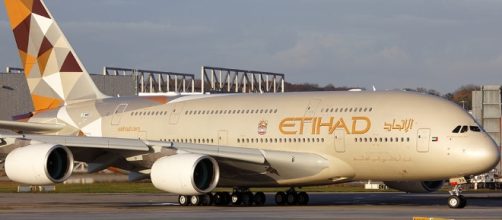United States had imposed a ban on carrying laptops in the cabin of non-stop flights that originate from seven specific airports in Muslim majority countries. This was an action taken in March as an anti-terrorism measure because there was information about the Islamic State developing a bomb that could be concealed in a laptop.
However, a recent announcement indicated that if those airports introduce rigorous checks on passengers before they board the flight, the ban could be reviewed. The checks should be at par with checks in America. Etihad Airways of the UAE has now complied with this requirement and laptop ban has been withdrawn allowing passengers to carry laptops in the cabin.
Procedure to lift the ban
According to New York Times, Etihad Airways earned the relaxation by proving to the American officials that it had taken necessary steps to introduce rigorous checks on passengers of non-stop flights to the US. Etihad is the national carrier of the United Arab Emirates and it had begun conducting more passengers heading for the United States and screening at the Abu Dhabi International Airport itself. The airport has modified its system and has replicated the checks carried out in the US end to ensure that passengers can clear the checks at their destination.
The Department of Homeland Security had indicated last week that laptop ban would be lifted for airlines provided they are able to fulfill the requirements of increased security.
Therefore, Etihad has taken the initiative because it operates more than 40 flights weekly to six American cities and does not want to lose out on passengers because of any ban. However, it realizes that the ban is a necessary evil meant to prevent any terrorist attack on a commercial flight where hundreds of lives would be at stake.
Etihad has set an example
The Transportation Security Administration has appreciated the action taken by Etihad Airways since it is a part of an anti-terrorism measure for the safety of the international civil aviation and the industry. Instead of debating the subject, airlines should take steps to follow the example set by Etihad. Terrorism is a global phenomenon and efforts must be made to fight it at all levels.
Homeland Security had imposed the laptop ban in March and passengers from some majority-Muslim nations proceeding to the United States were not allowed to carry electronic items larger than cellphones as cabin luggage. The decision was based on intelligence reports about possible Islamic State attacks. It resulted in many airlines reducing the number of flights they usually operate to the US.
It is the responsibility of officials of the seven affected airports to ensure that larger electronic devices are not allowed in cabins of nonstop flights to the United States. The Department of Homeland Security wants such passengers to hand over these items as checked luggage, or travel without them.


